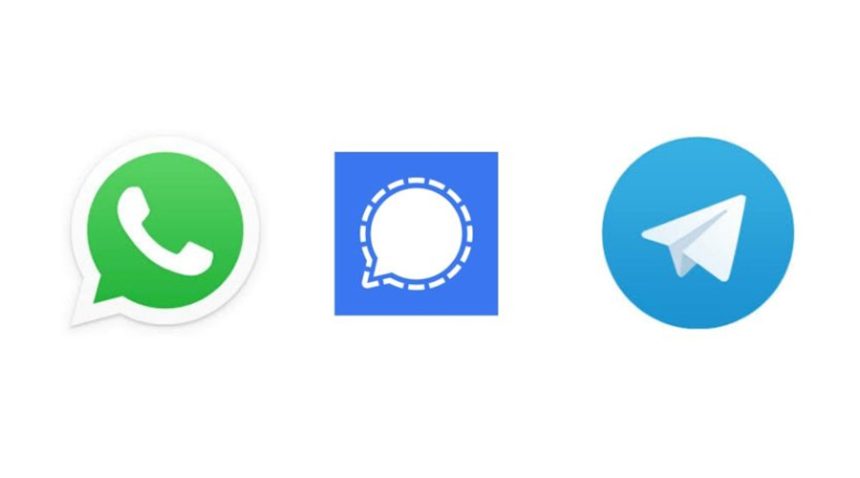WhatsApp’s seamless experience vs Telegram’s group functionalities vs Signal’s privacy
WhatsApp, Telegram, and Signal remain the most used messaging apps in 2025. Each one serves a specific need of users. WhatsApp dominates due to its enormous user base while Telegram for its advanced features. Signa, on the other hand, remains the most used app among those who want maximum privacy.
Let’s explore the comparison between the three, feature-wise, security-wise, and privacy-wise to understand their strengths and weaknesses.
WhatsApp vs Telegram vs Signal
Availability and Basic Features
All three apps support one-on-one messaging, group chats, audio and video calls, file sharing, and self-destructing messages. They are accessible on iOS, Android, Windows, macOS, and Linux. However, they have very different standards when it comes to encryption standards and data collection policies.
Encryption and Security Protocols
Signal, by default, applies end-to-end encryption (E2EE) to all conversations while encrypting the metadata and the data that is clouded up. WhatsApp also has E2EE for communications, yet cloud backups are not encrypted. Telegram only enables E2EE on ‘Secret Chats,’ making all its standard conversations not entirely secure.
The type of encryption protocols implemented by the applications also plays a role in determining the security level. Signal uses the well-known protocol Signal Protocol whereas Telegram employs its proprietary MTProto protocol. Comparatively, Signal accumulates only a phone number for registering and doesn’t store any user data. Telegram collects a phone number, email ID, and contact details.
On the other hand, WhatsApp collects a very large amount of data, such as location, IP address, status updates, ISP details, phone model, and even your purchase history. The encryption for group chats also differs, with Signal offering the highest security. WhatsApp ensures that its group chats are encrypted, but Telegram does not encrypt its group conversations by default.
Unique Features and User Experience
Every application offers features that make it special and define the user experience for a particular application. Signal is known for emphasizing data privacy, and handling encrypted communication on default while collecting little information. Telegram is also very versatile, especially in managing large communities, as it supports up to 200,000 members per group, while WhatsApp only supports 256 members and Signal only supports 1,000.
Another feature that Telegram offers is advanced customization, such as the ability to personalize themes. WhatsApp is still the most used because of its widespread adoption and business-oriented features, such as catalogs and quick replies.
File Sharing and Cloud Storage
File-sharing capabilities are also a distinguishing feature. Telegram allows the user to share files up to 2GB in size, which are stored in the cloud. WhatsApp and Signal limit file transfers to 100MB. Another feature of Telegram is that it supports sending uncompressed images, while WhatsApp and Signal do not.
Disappearing Messages and Screenshot Detection
The disappearing messages feature also differs. WhatsApp makes disappearing messages default but does not provide screenshot notifications, while Telegram requires users to opt into “Secret Chats” and gives senders an alert when someone takes a screenshot. The self-destruct timer in WhatsApp is seven days, whereas Telegram allows a message to be deleted between one second and one week.
User Interface and Customization
User interface preferences differ across individuals, but some trends remain consistent. Telegram offers the most customization, allowing users to modify themes, chat backgrounds, and message bubbles. Signal provides a clean and minimalistic interface, ensuring a clutter-free experience. WhatsApp prioritizes functionality with its familiar and intuitive layout, making it the easiest for those who prefer a straightforward design.
Privacy and Data Collection Policies
Security remains the most important consideration for many consumers when choosing one application versus another. Signal encrypts metadata and has a “Sealed Sender” system that protects against tracking. WhatsApp makes promises to encrypt data but has garnered notoriety because of its policies for sharing information with Meta. Telegram offers end-to-end encryption but only on Secret Chats, which does not extend to general text.
Ownership has a lot to do with privacy. Signal is owned by the non-profit Signal Foundation, which ensures that its business model does not depend on collecting data. WhatsApp, being owned by Meta, makes money from massive data collection. The ownership of Telegram is not clear, but it gets funding through premium subscriptions and ads in large public channels.
Conclusion: Which Messaging App is Best in 2025?
Comparison table of WhatsApp vs Telegram vs Signal:
| Feature | Telegram | Signal | |||
| End-to-End Encryption (E2EE) | Yes (default) | Only in Secret Chats | Yes (default) | ||
| Encryption Protocol | Signal Protocol | MTProto | Signal Protocol | ||
| Data Collection | Extensive (location, IP, device info, messages) | Moderate (phone number, contacts) | Minimal (only phone number) | ||
| Group Chat Encryption | Yes | No | Yes | ||
| File Sharing Limit | 100MB | 2GB | 100MB | ||
| Cloud Storage | Yes (but backups are not encrypted) | Yes (default) | No (local storage only) | ||
| Group Size Limit | 256 members | 200,000 members | 1,000 members | ||
| Disappearing Messages | Yes (7-day timer) | Yes (1 second to 1 week)
|
Yes (user-defined timer) | ||
| ScreenshotDetection | No | Yes (Secret Chats only) | No | ||
| Customization Options | Limited | Extensive (themes, chat backgrounds) | Minimal | ||
| Ads & Monetization | No ads (Meta-owned) | Ads in large channels | No ads (non-profit) | ||
| Business Features | Yes (WhatsApp Business) | Limited | No | ||
| User Interface | Simple and familiar | Highly customizable
|
Minimalist and clean | ||
| Ownership | Meta (Facebook) | Privately owned (Durov Brothers) | Signal Foundation (non-profit) | ||
| Best For | Mainstream users, business communication | Large groups, feature-rich experience | Privacy-focused users |
Ultimately, deciding which app to use depends upon individual priorities, but Signal works best for anyone who values user privacy and security above all other considerations. It employs the strongest available encryption, with data collection kept strictly to a bare minimum. It is the superior choice for anybody seeking advanced functionality, large groups, and detailed customization. Simple is also the simplest messaging app to use for mainstream purposes, with an astonishing two billion users, regardless of the worry over data being privy. However, WhatsApp provides easy connectivity, and Telegram is enriched with fun features besides just chatting. For example, people can enjoy Play to Earn games, indulge in crypto investments, etc through Telegram. Thus, choosing the best messaging app in 2025 depends on users’ personal needs as well as privacy concerns.






